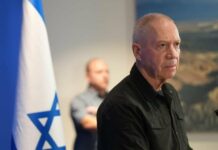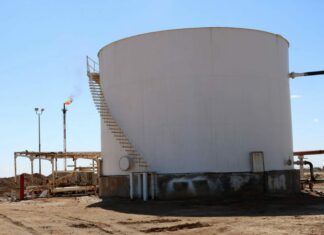
Turkish forces have intensified airstrikes and drone attacks on positions held by the PKK-linked Syrian Democratic Forces (SDF) in northern Syria, following a terror attack on the Turkish Aerospace Industries (TUSA) facility in Ankara on Wednesday. Turkish authorities attribute the attack, which left five dead and 22 injured, to militants from the Kurdistan Workers’ Party (PKK), and have pledged retaliatory action against PKK-aligned groups in Syria and Iraq.
Turkish drones targeted over 40 SDF and PKK-affiliated sites, focusing on military installations and infrastructure, including oil fields, power stations, and checkpoints in northeastern Syria. Sources in the region reported drone strikes on the SDF-controlled city of Ayn al-Arab (Kobani), Qamishli, and oil-rich areas in Rmelan. Turkish strikes reportedly extended to civilian infrastructure in Amuda, where a power station and bakery sustained damage.
An SDF spokesperson stated that at least 10 SDF members were killed or injured during Turkish strikes on Wednesday and Thursday, with Asayish (SDF’s internal security force) members among the casualties. Multiple explosions at the Suwayda oil field left eight dead and six seriously injured, sparking fires that severely damaged the facility.
The SDF, in a statement, accused Turkey of “indiscriminate” targeting of civilian and service facilities. SDF Commander-in-Chief Mazloum Abdi called the Turkish operations a “real war crime” on social media, appealing to international actors for intervention. The SDF has called on both the US-led coalition and Russian forces to prevent further Turkish incursions, urging them to enforce control over the airspace in the region.
Turkey’s Ministry of Defense reported on Thursday that it had destroyed 32 “terrorist” sites across northern Syria and Iraq, following the Ankara attack. The ministry justified the airstrikes under Article 51 of the United Nations Charter, framing the operation as self-defense against groups it deems a direct threat to Turkish security.
The ministry stated that Turkish forces are committed to “neutralizing” PKK operatives and “terrorist elements” that Turkey holds responsible for recent violence. Turkish President Erdogan vowed to “eliminate terrorism at its source,” accusing attackers of infiltrating Turkey from Syrian territory. Erdogan’s government has increased its focus on “securing” the border region, reportedly staging additional troops and reinforcements near contact lines with the SDF.
The Assad regime condemned Turkey’s operations and hinted that a “limited ground operation” by Turkish forces may be imminent. Pro-regime media, including Al-Watan newspaper, reported that Turkish forces could launch a cross-border incursion into SDF-controlled regions in northern Syria, specifically in the countryside of Ayn Issa and Tal Tamr near Hasakah. Sources close to the regime indicated, however, that a broader Turkish offensive into the strategic towns of Tal Rifaat, Ayn al-Arab, or Manbij remains unlikely due to the lack of international support.
Al-Watan further noted that Turkey’s ground operation plans appear to be constrained by complex regional dynamics. The US, preoccupied with ongoing diplomatic efforts in Gaza, Lebanon, and broader regional stability, is reportedly opposed to a significant escalation in Syria. In a symbolic move, US forces conducted a patrol along the Syrian-Turkish border in Hasakah, signaling Washington’s stance against a large-scale Turkish intervention against the SDF, a critical ally in its campaign against ISIS.
Turkey’s recent escalation against the SDF, alongside threats of a ground operation, has intensified regional tensions, adding to an already volatile security landscape. Analysts warn that continued hostilities could push the region into deeper instability, displacing more civilians and affecting oil and energy infrastructure critical to local economies. According to local sources, the latest strikes have already driven hundreds of families from border towns toward safer areas in central Syria, as fears of further conflict grow.








